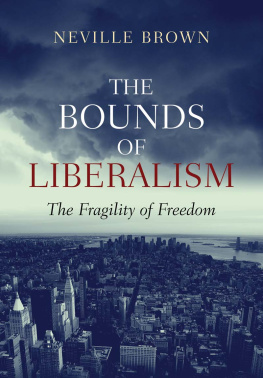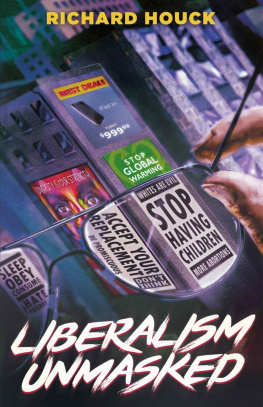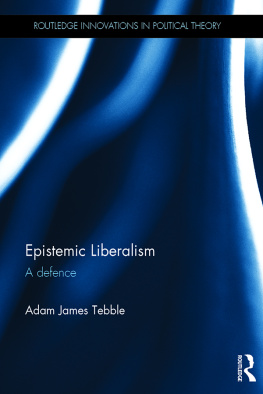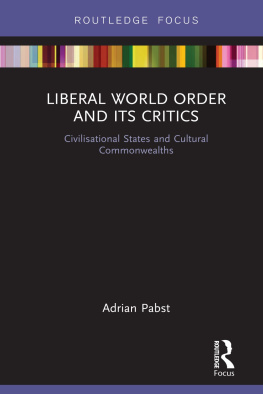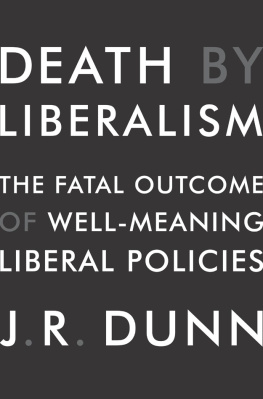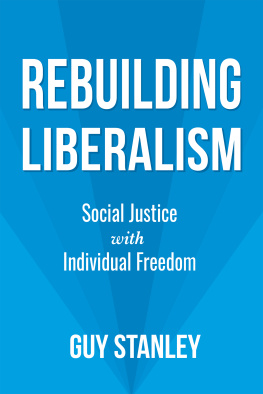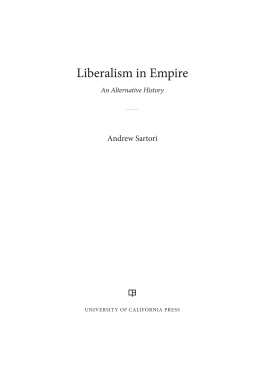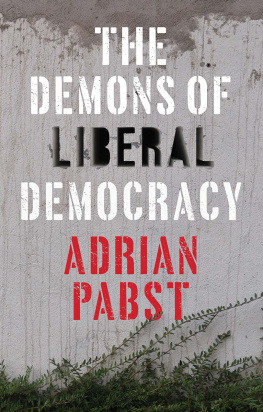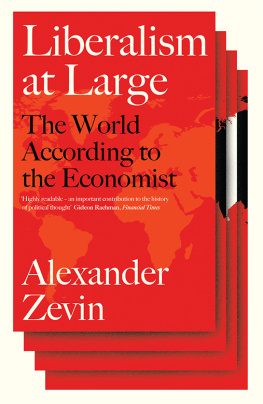The core issue of this work is how far the West may need to modify or extend the liberal philosophy informing its responses to the multiple world crisis it is now attempting to deal with. The Bounds of Liberalism: The Fragility of Freedom (2014) is the third contribution to an informal trilogy which seeks to reconnoitre the salient issues involved in building a durable world peace. The first was the well-received Engaging the Cosmos: Astronomy, Philosophy and Faith (2006) and the second the highly commended The Geography of Human Conflict: Approaches to Survival (2009). Review endorsements for the trilogy, which addresses very comprehensively the challenges of our times, are provided within the book.
This last steed in the troika will consider how liberal democracy can best sustain its dynamic, externally and internally, in a world liable to become progressively more vexatious in manifold ways. One must reckon with ambient stresses along with the internal contradictions of liberalism as such, not least of social liberalism. It provides a review of the strengths and weaknesses of Social Liberalism that, broadly speaking, occupies the ground between moderate Right and moderate Left. The work is informed by the conviction that the world, half a century hence, will be either considerably better than now (freer, more peaceable, more enriching ) or else a good deal worse.
Those concerned to effect the former outcome should promote the spread among emergent states of well-founded democracy. But they must also look stringently at how well democratic institutions may function in the mass societies of the West. History indicates that pell-mell cultural change, constant ecological impoverishment, and endless leap forwards in applied science may not augur well for stability and peace. The authors accepted expertise in History, International Security, Planetary Development and Applied Geophysics means he can address a variety of issues such as: climate change and resource depletion; community decay, data saturation, the future of universities, democratic devolution, leaders and led, and medical philosophy; and biowarfare, the management of Near Space, international political economy, and a planetary ethos.
It is contended that we are not approaching the end of History in any meaningful sense. Instead we are passing through, at accelerated pace, a transition as profound as that between the Old and New Stone Ages. Our perspectives on the immediate future may be honed by free-ranging speculation about what mankind can anticipate over the next few centuries.
Neville Brown has authored twelve books or major reports, including The Future of Air Power (1986). With the award-winning Future Global Challenge (1977), he began to give economic, social and ecological factors salience in the quest for a peaceable world. This thrust has continued with New Strategy Through Space (1990) through to Global Instability and Strategic Crisis (2004). His History and Climate Change, a Eurocentric Perspective (2001) reviews the last two millennia. In 1990, Professor Brown was elected a Fellow of the Royal Astronomical Society.
Endorsements for
A Planetary Trilogy
The Bounds of Liberalism: The Fragility of Freedom (2014) is the final contribution to an informal trilogy which seeks to reconnoitre the salient issues involved in building a durable world peace. The first was the well-received Engaging the Cosmos: Astronomy, Philosophy and Faith (2006) and the second the highly commended The Geography of Human Conflict: Approaches to Survival (2009).
Engaging the Cosmos: Astronomy, Philosophy and Faith (2006)
This is an unusual book which ranges across astronomy, philosophy and faith as the subtitle promises. It embraces a study of the value systems and concepts which have come from major religions and other structures of belief. Ultimately Professor Brown, seems to be fundamentally concerned with what human beings are and the meaning of human consciousness. His book, he says, arises from a need to consolidate the forces of reason but also to be infused with the virtues we see as aspects of reality.
The author embarks on this task by considering ideas from a very wide range of thinkers and actors throughout history: Moses, Plato, Jesus, Newton, Einstein, Kant, Maimonides, Mohammed and many others. He manages to do this without being, on the one hand, encyclopaedic, on the other fragmentary; this is a particularly notable feature of a book of only just over 300 pages.
The interdisciplinary coverage of the book is extraordinary and rather exciting in its exploration of philosophic implications of the developments in our knowledge of the universe. Yet, in a sense, there is a simple directness in its ultimate propositions that it is a privilege to be a human being and that as Professor Brown puts it, relations will improve between the great religious obediences; between them and philosophic obediences; and between all of these and the natural sciences. Well worth the effort for a wide range of readers, philosophers, scientists, and non-specialists.
Philosophy of Management
Neville Brown brings a distinctive voice and a lifetimes reflection to the discussion of both science and spirituality. He provides an engaging compendium of information on human evolution, emphasising the critical role astronomy has played in redefining human self-perception. Eastern as well as Western cultures fall within his purview and he provides the grounds for welcoming the spiritual experimentation taking place within and across different religious traditions. This is a book for all who share his concern that in a shrinking world the choice between fanaticism and conciliation is becoming ever starker.
John Hedley Brooke, Andreas Idreos Professor of Science & Religion, University of Oxford
Professor Neville Brown has written a magisterial book on current relationships and debates involving astronomy, philosophy, and theology. His work on this broad and daunting topic is a highly creative and accessible analysis by a writer with unusual interdisciplinary strengths. He explores the interactions among the main religious faiths of the world, and between them and astrophysics and astrobiology. He examines the implications of this exploration for such questions as the concept of a just war, the non-weaponization of space, and effective measures of arms control.
Professor Brown argues that the preservation of Nature could be one valuable consequence of a heightened dialogue and discussion among the worlds great faiths. And he has produced a work that has sweeping implications for social and political policy-making. Political, religious, and civic leaders world-wide would do well to heed this books message.
Milton C. Cummings, Jr., Professor Emeritus of Political Science, Johns Hopkins University
One can always be certain that any book by Neville Brown will exhibit breadth and depth of experience and learning. Engaging the Cosmos does not disappoint. This book is absorbing. The narrative detail serves to place all the major historical information in a fascinating context.
Neville Brown makes it natural that astronomy, philosophy and faith in their widest interpretation should be discussed together. Each reinforces the other in the development of the book. It is rare to find an author who is equally comfortable with modern astrophysics as with the motivations of the ancient world. If you want to know who is or was who in these fields you will find a discussion of them in this book. The issues are not left to ideals. We are brought to face issues of modern conscience and responsibility. Well worth reading.

